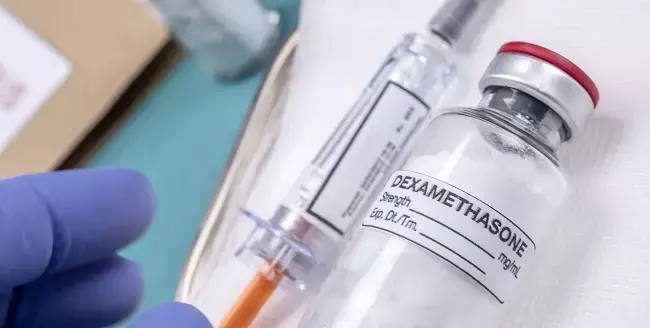- Home
- Medical news & Guidelines
- Anesthesiology
- Cardiology and CTVS
- Critical Care
- Dentistry
- Dermatology
- Diabetes and Endocrinology
- ENT
- Gastroenterology
- Medicine
- Nephrology
- Neurology
- Obstretics-Gynaecology
- Oncology
- Ophthalmology
- Orthopaedics
- Pediatrics-Neonatology
- Psychiatry
- Pulmonology
- Radiology
- Surgery
- Urology
- Laboratory Medicine
- Diet
- Nursing
- Paramedical
- Physiotherapy
- Health news
- Fact Check
- Bone Health Fact Check
- Brain Health Fact Check
- Cancer Related Fact Check
- Child Care Fact Check
- Dental and oral health fact check
- Diabetes and metabolic health fact check
- Diet and Nutrition Fact Check
- Eye and ENT Care Fact Check
- Fitness fact check
- Gut health fact check
- Heart health fact check
- Kidney health fact check
- Medical education fact check
- Men's health fact check
- Respiratory fact check
- Skin and hair care fact check
- Vaccine and Immunization fact check
- Women's health fact check
- AYUSH
- State News
- Andaman and Nicobar Islands
- Andhra Pradesh
- Arunachal Pradesh
- Assam
- Bihar
- Chandigarh
- Chattisgarh
- Dadra and Nagar Haveli
- Daman and Diu
- Delhi
- Goa
- Gujarat
- Haryana
- Himachal Pradesh
- Jammu & Kashmir
- Jharkhand
- Karnataka
- Kerala
- Ladakh
- Lakshadweep
- Madhya Pradesh
- Maharashtra
- Manipur
- Meghalaya
- Mizoram
- Nagaland
- Odisha
- Puducherry
- Punjab
- Rajasthan
- Sikkim
- Tamil Nadu
- Telangana
- Tripura
- Uttar Pradesh
- Uttrakhand
- West Bengal
- Medical Education
- Industry
Add on Perineural dexamethasone to bupivacaine may prolong ulnar nerve block

Healthy participants who received perineural dexamethasone in addition to bupivacaine experienced a longer ulnar nerve block than those who received a placebo, says an article published in Anesthesiology.
When used as an adjuvant to peripheral nerve blocks in patients having surgery, dexamethasone delivered perineurally or systemically prolongs block duration. It is uncertain whether the block-prolonging effects of perineural injection result from a direct perineural mechanism of action or from the systemic analgesic effects of dexamethasone. The purpose of this study by Mathias Maagaard and colleagues was to test the hypotheses that systemic dexamethasone is noninferior to perineural dexamethasone and that both perineural and systemic dexamethasone as adjuncts to bupivacaine enhance the duration of an ulnar nerve block compared to bupivacaine alone.
On two trial days, the authors administered bilateral ulnar nerve blocks with 3 ml bupivacaine 5 mg/ml in 16 healthy volunteers. On one trial day, subjects received adjunct treatment with 1 ml dexamethasone 4 mg/ml + 1 ml saline (perineural condition) in one arm and 2 ml saline in the other arm (systemic condition, through absorption and redistribution of the contralaterally administered perineural dexamethasone) in the other arm (lidocaine condition) on the other trial day. The duration of the sensory nerve block was measured using temperature discrimination as the primary result.
The key findings of this study were:
The average sensory block duration for the perineural condition was 706 94 minutes, 677 112 minutes for the systemic condition, and 640 121 minutes for the placebo condition.
Perineural dexamethasone prolonged sensory nerve block duration compared to placebo (mean difference 66 min (95% CI, 23 to 108).
The length of the block was comparable between systemic dexamethasone & placebo (mean difference 36 min; 95% confidence interval, -30 to 103).
Reference:
Maagaard, M., Stormholt, E. R., Nielsen, L. F., Bærentzen, F., Danker, J., Zachodnik, J., Jæger, P., Mathiesen, O., & Andersen, J. H. (2023). Perineural and Systemic Dexamethasone and Ulnar Nerve Block Duration: A Randomized, Blinded, Placebo-controlled Trial in Healthy Volunteers. In Anesthesiology (Vol. 138, Issue 6, pp. 625–633). Ovid Technologies (Wolters Kluwer Health). https://doi.org/10.1097/aln.0000000000004557
Dr Kartikeya Kohli is an Internal Medicine Consultant at Sitaram Bhartia Hospital in Delhi with super speciality training in Nephrology. He has worked with various eminent hospitals like Indraprastha Apollo Hospital, Sir Gangaram Hospital. He holds an MBBS from Kasturba Medical College Manipal, DNB Internal Medicine, Post Graduate Diploma in Clinical Research and Business Development, Fellow DNB Nephrology, MRCP and ECFMG Certification. He has been closely associated with India Medical Association South Delhi Branch and Delhi Medical Association and has been organising continuing medical education programs on their behalf from time to time. Further he has been contributing medical articles for their newsletters as well. He is also associated with electronic media and TV for conduction and presentation of health programs. He has been associated with Medical Dialogues for last 3 years and contributing articles on regular basis.
Dr Kamal Kant Kohli-MBBS, DTCD- a chest specialist with more than 30 years of practice and a flair for writing clinical articles, Dr Kamal Kant Kohli joined Medical Dialogues as a Chief Editor of Medical News. Besides writing articles, as an editor, he proofreads and verifies all the medical content published on Medical Dialogues including those coming from journals, studies,medical conferences,guidelines etc. Email: drkohli@medicaldialogues.in. Contact no. 011-43720751


